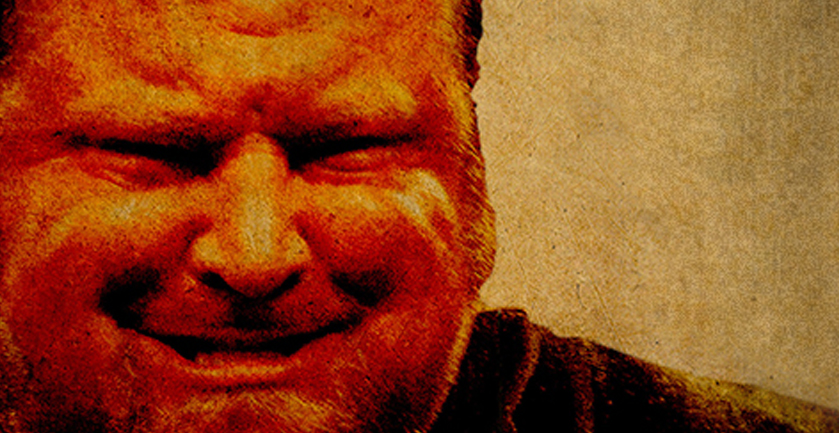
In all my years of lifting, especially in powerlifting, I've gained a tremendous amount of knowledge about strength. Most of this knowledge was learned more through advice from great lifters' actions and words than from books. It was those little golden nuggets of information I would pick up in general conversations or keeping my mouth shut and watching what the other lifters did that helped me so much. That’s real life in the trenches kind of knowledge, not the sitting in a classroom knowledge. So with this article, I'll try to bring a little of my trench warfare knowledge to all of you in the written form.
Here are what I consider to be six of the most important pieces of advice I ever got during my quest to be the best powerlifter that I could be.
#6 Don't Make Changes on Meet Day
I was in Las Vegas for the AAPF Nationals when I got some simple but great advice from one of the greatest 308-pound lifters of all time. My goal there was to break my own AWPC squat world record and squat 1000 pounds drug-free. This was a huge and very important goal for me because I had been told by so many people that it wasn't possible, and I hate being told that I can’t do something.
I missed my first attempt at a grand. I was pumped up and was basically trying to dive bomb it, which didn’t work. My good friend Jesse Burdick was handling me, and Paul Childress happened to be there watching. Paul was Jesse’s strength coach in college, so they knew each other. After my first attempt, Paul told Jesse that I could get that lift. He said that I just needed to slow down my descent and stay tight. Well, Jesse told Paul to tell me directly and, despite not even knowing me, he did. I thought that this was a damn cool thing to do and there wasn't any way that I was going to blow off advice from Paul Childress. I followed his advice and got my first 1000-pound squat.
Paul's advice was completely correct, but there was more to it than just correct technique for me. The technical advice that he gave me was the same stuff I worked on in training. I just wasn't doing it in the meet because I wanted the lift so badly and I was getting so excited. So the most important part I took away from Paul's advice was that I need to do in the meet what I worked so hard on in training. I train for the meet, so to change things up at the meet doesn't make any sense.
#5 There are No Limits
This next piece of advice didn't come in the form of words but rather in the form of actions. When I was coming up in the powerlifting world, Brent Mikesell was just destroying the squat records. He was someone I looked up to because of his amazing technique, and his depth was legit. He also happened to be the first person I saw squat over a grand in person. He ended up breaking the world record when it was somewhere around 1040 pounds I believe (this was a while back). Then he went on a crazy run of breaking squat record after squat record. I remember when he and Steve Goggins were after 1100 pounds. I thought to myself, there has to be a limit. It can't keep going up like that. Well, Goggins was the first to break 1100 pounds, and Brent went on to squat 1173 pounds.
What I learned from Brent was never put a limit on anything, especially myself. Watching his lifting career made me realize that it doesn't matter at all what anyone else has done. It only matters what I'm going to do. Whether someone has done something or not has no relevance on whether or not I can do it.
#4 Listen to Your Body
This next one is also from actions, not words. It's also not from one person but from seeing similar actions many times from different people. Like I said many times before, I'm fortunate to have had the chance to be around so many top athletes, especially in lifting.
Years back, a friend of mine, who is a top bodybuilder, lived here in Reno and trained at American Iron. One day, he was supposed to be in the gym for a leg day and I called him to see when he would be in. He basically said that he wasn't really feeling it and he wasn't coming in. I asked if he was going to make it up the next day and he said no. He would be in on his next scheduled day. If you miss a session, you miss it.
Sometime later, I was out of town for the Highland Games and I called a friend who is a professional Strongman. I told him that I was in town for the games and that the day after the games, I wanted to hang out while they trained. I told him that I wouldn't lift but that I would certainly load plates and spot or do whatever I could to help. So the next day, I called him after my games and after he had finished working to see what time I could meet them. He said that he had had a lousy, long day at work and that he was beat up so he wasn't going to train that night. I asked if he would be making it up the following day because I would still be in town. I got the same answer that my bodybuilder friend had given me. Basically, he missed that session so they would be moving on to the next scheduled one.
I've come across so many stories like this. I knew a guy who's wife had a baby, so he missed sessions and didn't train as hard as he usually did but had the best meet of his life. I had another friend who had some serious family issues and said that his training for the meet wasn't what he planned because he would miss sessions to go ride his motorcycle and clear his head. He ended up having an amazing meet.
At the time, this was all very strange to me because I came from the "never miss a session" camp. If I happened to miss because I was sick or something, I would do both sessions the next day. In my mind, if you missed, you were getting weaker. After a while, I had to stop and think though. Maybe they all knew or learned something that I hadn’t? I'm hard headed, but even I can make a breakthrough sometimes. These were all top strength athletes, so at a minimum, it deserved some thought.
The advice I took from all these athletes’ actions was to learn my body and listen to it. These guys knew when they needed to push through having a bad day and when they really needed to back off. Maybe it was for physical reasons or maybe it was for mental reasons, but they knew when it was good to back off. They also didn’t freak out or stress about missing a session. I admit that I still struggle with this, but I'm always improving in this area.
#3 Trust Yourself
Early in my powerlifting career, I was struggling in my training and with training my team. We would all do awesome for three weeks and then everything seemed to fall apart. Eventually, we would take a few days off and come back strong for about another three weeks. I called up Dave Tate and asked him for advice on this issue. I was hoping for some ideas, but instead, Dave asked me what I thought we should do in order to resolve this. I told him the things that I was thinking about and what I thought would be the best way to get past this. Dave said, "So why aren't you doing that?"
I've always respected Dave's straight forward and simple ways of explaining things. For me, his advice meant that I needed to trust myself and trust what I knew.
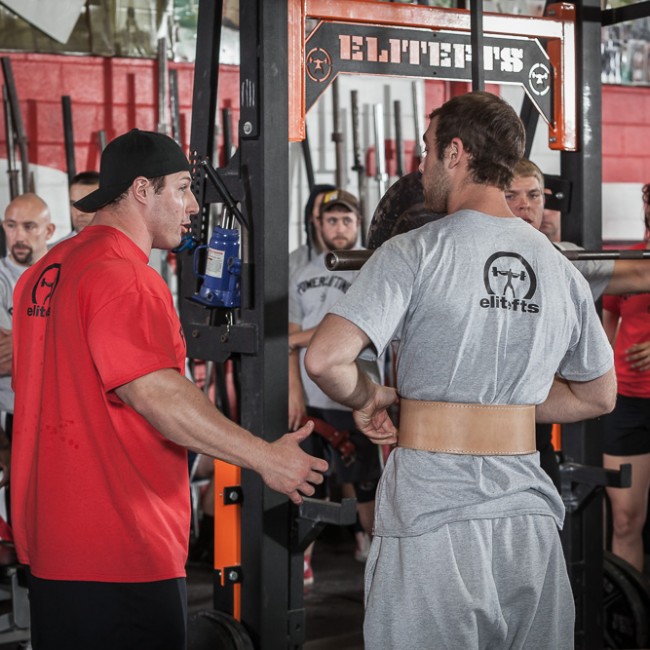
#2 Know What to Believe
This one is basically advice that I gave to myself. When I first started powerlifting, I was doing old style, 12-week programs, but I knew that I didn't know enough to get as strong as I wanted. I did have some of my own ideas, but I didn't see anyone else doing anything like it, so I figured that my ideas must not be that good.
I felt like I was getting slower or less explosive. Maybe it was my throwing background, but it made sense to me to be as explosive as possible. However, I didn't see anyone else training that way. I went to my first elitefts™ seminar and so many of the ideas they discussed were similar to things that I was thinking. Of course, my ideas were rough and the elitefts™ guys already had everything in place, but I still left that seminar thinking that I really needed to start believing in myself and be willing to experiment with my own ideas. This is advice that took some time to sink in. Like I said, I'm hard headed, but once it sinks in, it can't get back out!
While this advice is very similar to the advice in number three, the difference is that I needed to believe in myself first and then trust in myself and what I knew. Believing and trusting are two different things.
#1 When You Leave the Gym, You're Still Training
I think this was the best single piece of advice that I've ever gotten and, again, it was from Dave Tate. In my early days of lifting, and even powerlifting, I wanted to be in the gym every day. If I wasn't in the gym, the world didn't make sense. I guess you could say I was OCD about it. I had to be in the gym every day. I was getting stronger but also overtraining a lot. I knew that I needed to back off or add more rest days in, but I still wasn’t fully trusting myself yet. This was something I struggled with for a long time.
At one point, I was talking with Dave and he said, "Everything you do to get stronger is training." He went on to say that if you know you need more sleep that day and you make time to take a nap, that is a training session. If you know that you need more protein or calories that day and you force down another meal, that's a training session. What that meant to me was that getting stronger isn't just about the lifting in the gym. Getting strong is about a way of life, and what you do outside the gym is just as important as what you do in the gym. This helped me deal with the fact that I simply couldn't train with high intensity every day. It helped me transition from a guy who lifted weights to a guy who trained to be his strongest. You could say that it helped me focus more on the goal than the process. It was more important to put up huge numbers in a meet than beat the crap out of myself in each training session. Don’t get me wrong—I understand the beating yourself up in each session and I did this for many years. But at this point, I wanted to be the best powerlifter that I could possibly be.









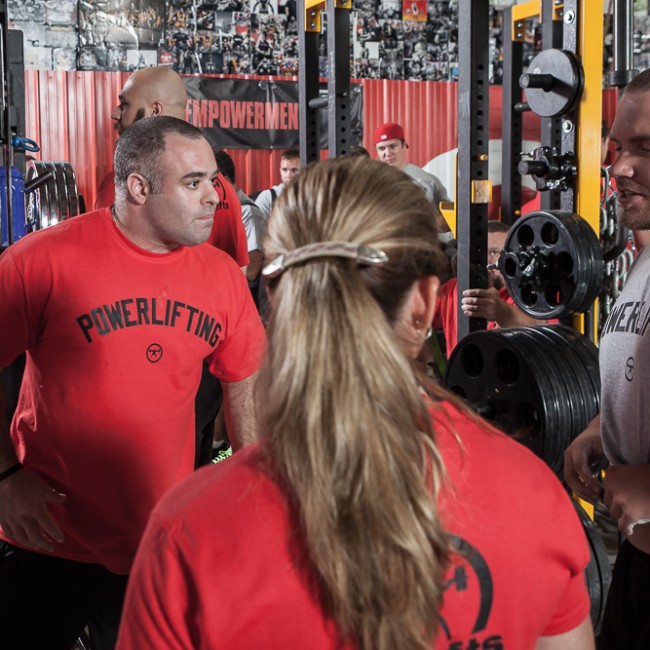
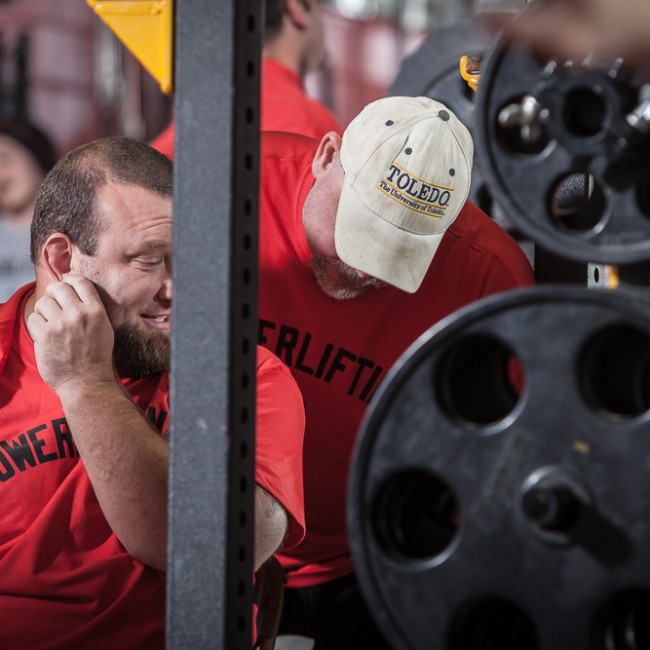
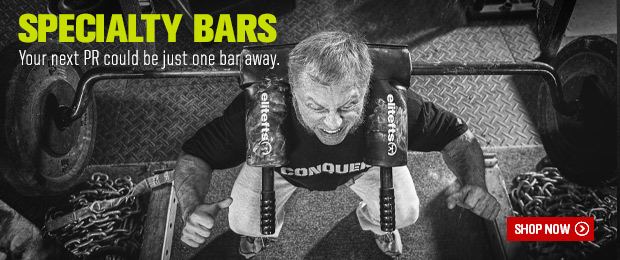

4 Comments